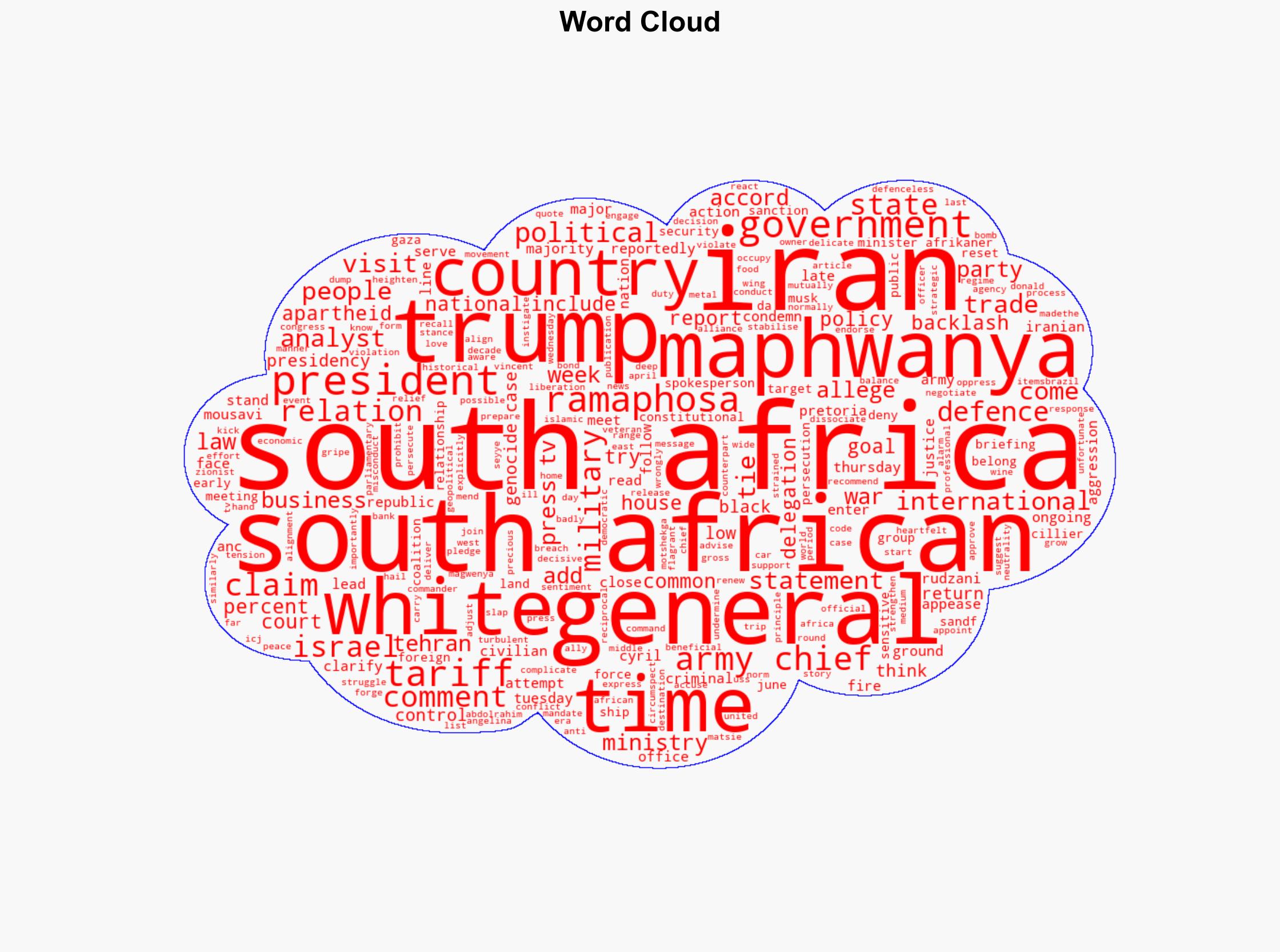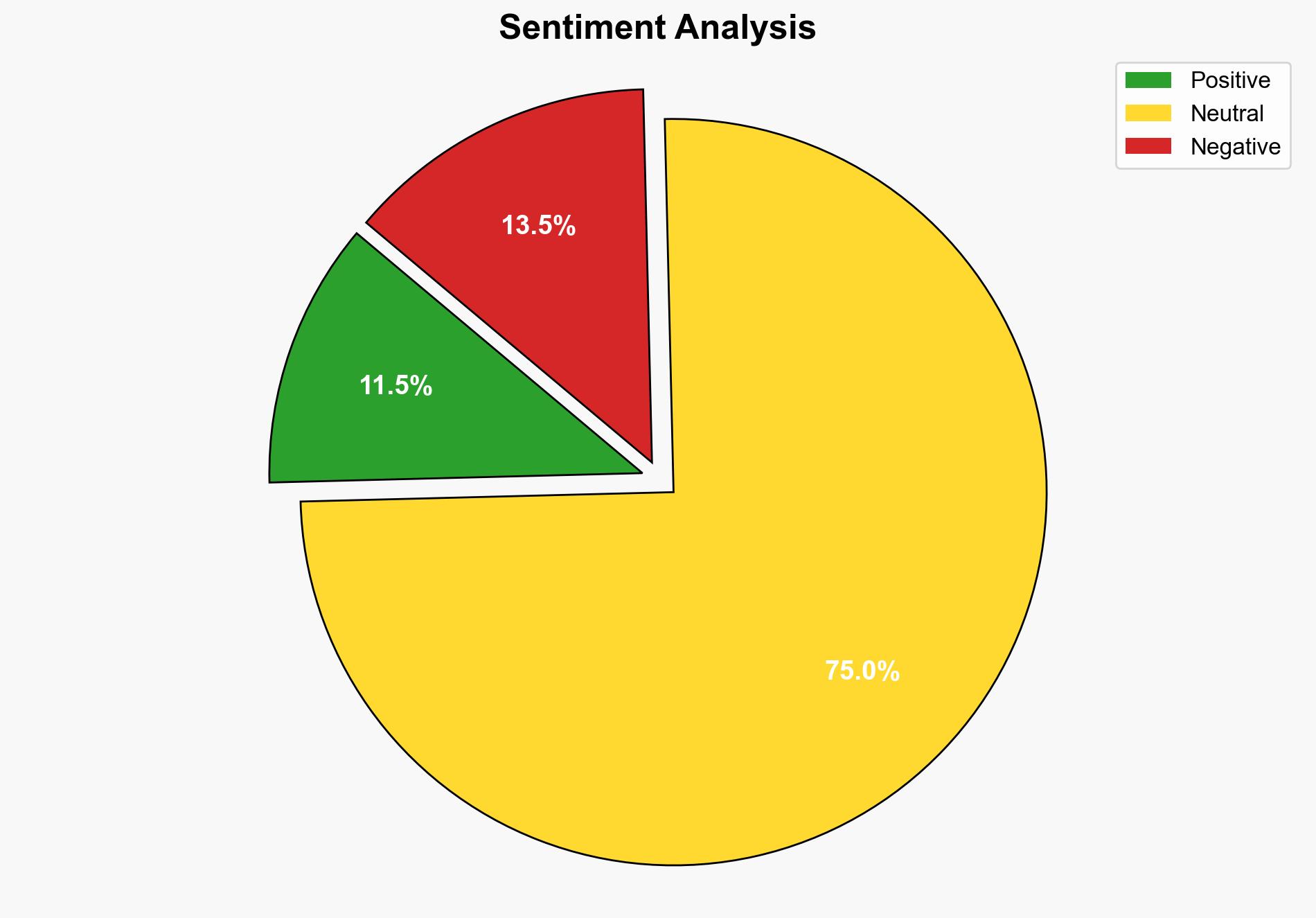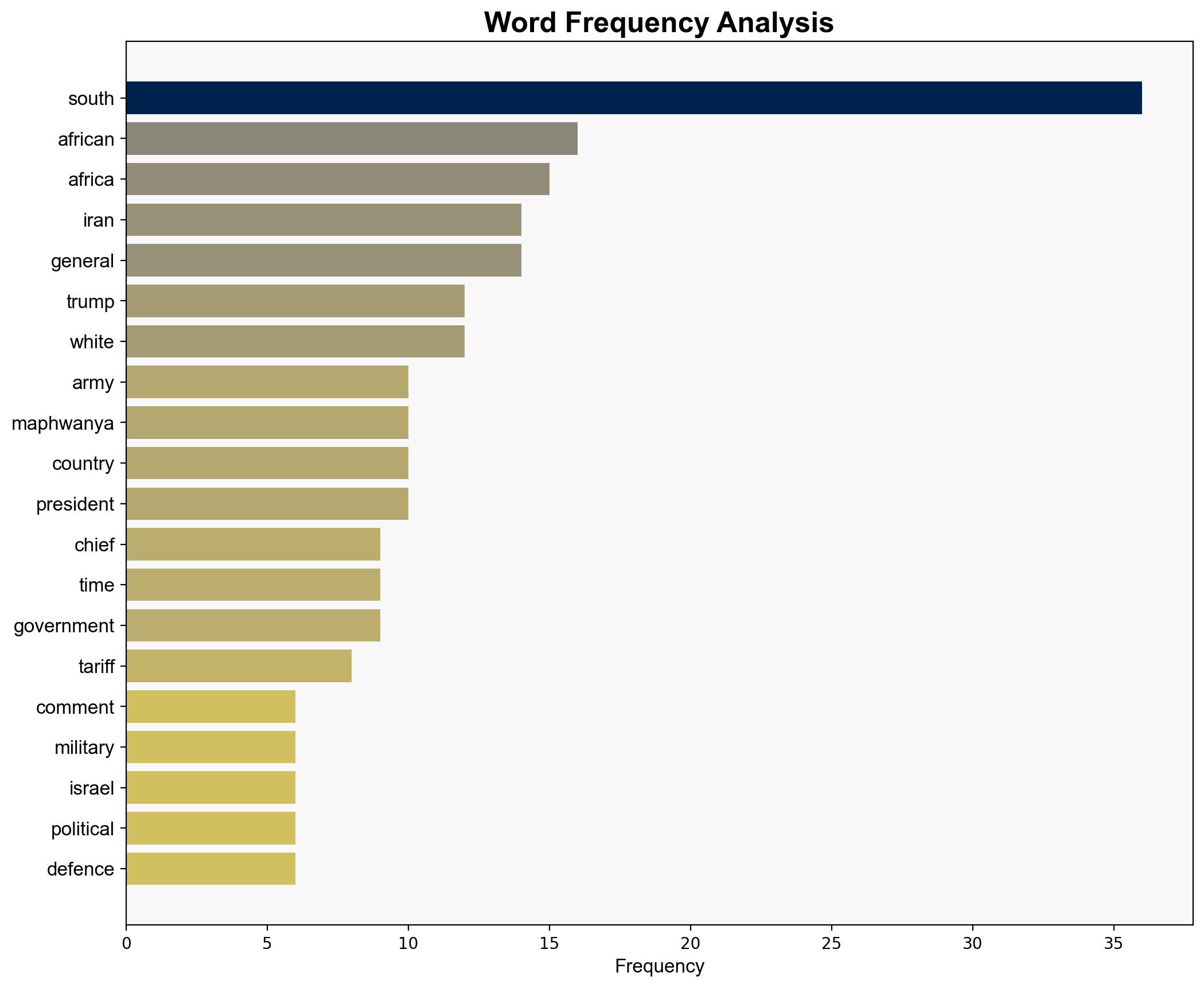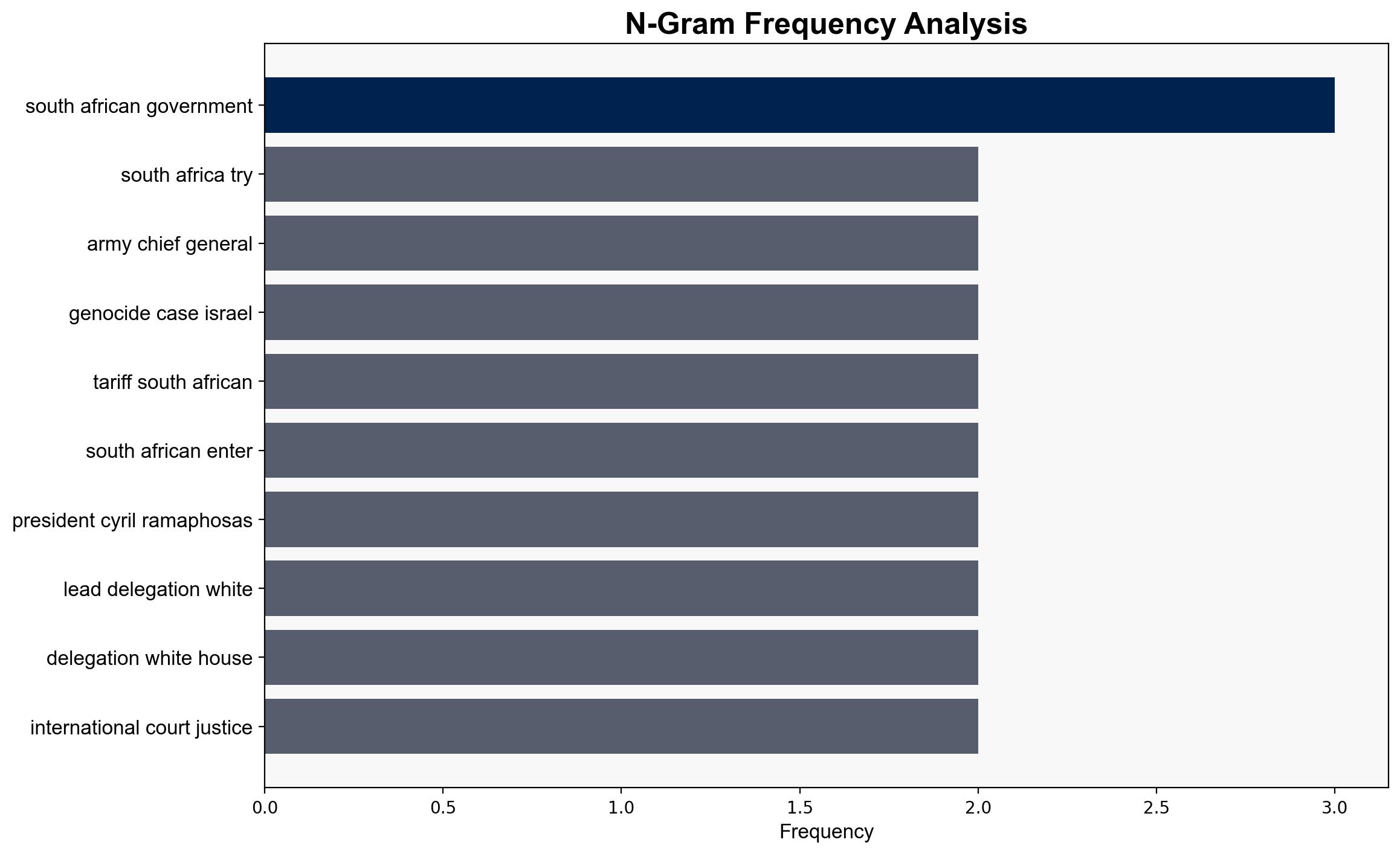Why is South Africas army chief under fire for backing Iran – Al Jazeera English
Published on: 2025-08-16
Intelligence Report: Why is South Africa’s Army Chief Under Fire for Backing Iran – Al Jazeera English
1. BLUF (Bottom Line Up Front)
The most supported hypothesis is that General Rudzani Maphwanya’s comments and visit to Iran are primarily driven by historical ties and shared geopolitical interests, rather than a strategic pivot towards Iran. Confidence in this assessment is moderate due to limited corroborative data. It is recommended that South Africa’s government clarify its foreign policy stance to mitigate diplomatic fallout with the United States and other allies.
2. Competing Hypotheses
1. **Historical and Ideological Alignment Hypothesis**: General Maphwanya’s comments reflect a continuation of historical ties between South Africa and Iran, rooted in shared anti-apartheid and anti-imperialist sentiments. This hypothesis suggests the visit was symbolic, aiming to reinforce historical bonds rather than indicate a strategic shift.
2. **Strategic Realignment Hypothesis**: The visit and comments indicate a potential strategic realignment towards Iran, possibly as a counterbalance to strained relations with the United States and to assert South Africa’s independent foreign policy stance.
Applying ACH 2.0, the first hypothesis is better supported by the evidence of historical ties and shared ideological narratives, as reported by Iranian state media. The second hypothesis lacks substantial evidence of a broader strategic realignment.
3. Key Assumptions and Red Flags
– **Assumptions**: It is assumed that General Maphwanya’s statements reflect official policy, which may not be accurate given the South African government’s distancing from his comments.
– **Red Flags**: The lack of explicit support from South Africa’s government for Maphwanya’s visit suggests internal discord or miscommunication. The timing of the visit amidst heightened geopolitical tensions raises questions about strategic intent.
– **Blind Spots**: Potential internal political dynamics within South Africa influencing foreign policy decisions are not fully explored.
4. Implications and Strategic Risks
– **Geopolitical Risks**: The visit could exacerbate tensions with the United States, impacting trade and diplomatic relations.
– **Economic Risks**: Potential repercussions on trade tariffs and economic partnerships if perceived as aligning with Iran.
– **Psychological Risks**: Domestic backlash and political instability if the visit is perceived as undermining South Africa’s international standing.
5. Recommendations and Outlook
- **Clarify Foreign Policy**: South Africa should issue a clear statement on its foreign policy objectives to reassure international partners.
- **Engage in Diplomatic Dialogue**: Initiate dialogues with the United States to address any misunderstandings and reaffirm commitment to bilateral relations.
- **Scenario Projections**:
– **Best Case**: The visit is contextualized as a historical gesture, with no long-term impact on international relations.
– **Worst Case**: Escalation of diplomatic tensions leading to economic sanctions or reduced trade.
– **Most Likely**: Temporary diplomatic strain, followed by normalization through diplomatic engagement.
6. Key Individuals and Entities
– Rudzani Maphwanya
– Cyril Ramaphosa
– Seyye Abdolrahim Mousavi
7. Thematic Tags
national security threats, geopolitical strategy, diplomatic relations, regional focus




